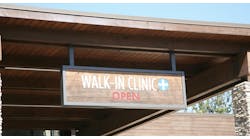With New Jersey lagging behind other states on adoption of alternative payment models (APMs), a workgroup of stakeholders and subject matter experts has developed recommendations to support advanced primary care in New Jersey.
The New Jersey Health Care Quality Institute was engaged by the New Jersey Department of Human Services to conduct a market scan of primary care, including alternative payment models (APMs) currently in use in New Jersey. A workgroup then developed several recommendations for the state.
The report found that primary care physicians are interested in moving away from fee-for-service (FFS) models to Advanced Primary Care models, which deliver team-based care, which is higher quality, more comprehensive care.
Limited physician workforce data points to an inadequate number of primary care physicians for the population of New Jersey. In addition, the state spends less than most other states on primary care as a percentage of total healthcare expenditure. FFS primary care rates in New Jersey Medicaid are at the low end in the United States, at about 50 percent of Medicare rates. Commercial payment rates are among the lowest in the country, and less than Medicare on average.
FFS is still the predominant payment mechanism, especially for smaller physician groups. To support Advanced Primary Care, greater use of hybrid payment models that combine capitation and FFS payment is needed. In the meantime, FFS payment rates for primary care should be increased, the report said.
More than 250 primary care practices in New Jersey chose to enter the CMS Primary Care First (PCF) model in 2021 and 2022 – signaling the appeal of hybrid payment models for primary care. PCF was conceived as a multi-payer model and CMS has invited health plans to participate voluntarily. Humana is the only NJ health plan that participates in PCF
The use of APMs by Medicaid managed care organizations (MCOs) also appears to be limited, the report said. Only one MCO provided information about their shared savings model, which covers approximately 179,000 adult lives.
The report recommends that the state should encourage the development of APM to support Advanced Primary Care (like the CMS Primary Care First model) through its Medicaid contract and State Health Benefit Program (SHBP). A state-led, multi-payer, and multi-stakeholder effort is needed to move the state from mostly FFS models to APM. The models could start out as hybrid (capitation and FFS) payment models to support Advanced Primary Care for New Jersey and then move to more advanced models.
It also recommends that the state should report annually on primary care spending as a percentage of total healthcare spending and on the use of APM.
The report said payers in New Jersey use too many different measures with different specifications in their APMs, and they are delivered on different platforms through differing reports. More standardization of reports and measures is needed with a focus on a limited set of outcomes measures. A NJ Core Measure Set was suggested.
Practices need greater support from payers, data technology vendors, and the state to receive and meaningfully use timely data to successfully operate in APM and improve their patients’ quality of care, the report said.
One eye-opening finding of the report is that despite years of federal and state funding, the NJ HIN and health information exchanges are not supporting the transfers of data and interoperability that is needed in population health.
.


